The Otter Project’s Top Achievements in 2022
It was a great year to protect sea otters! The Otter Project had some big victories in 2022, and made meaningful progress toward our goals in 2023 and beyond. Here are our top achievements over the last year:
1. Secured a characterization study and future removal of legacy contaminants in Moss Landing Harbor to save the sea otter. As part of a Clean Water Act settlement with a boatworks facility in Moss Landing Harbor, The Otter Project secured a commitment from the facility owner to study legacy pollutants that are lethal to sea otters in Moss Landing Harbor, which will subsequently facilitate the removal and proper disposal of contaminated sediments. The contamination of Moss Landing Harbor sediments from decades of boat maintenance in the area presents an ongoing risk and threat to the Harbor and Elkhorn Slough, one of the most important estuaries and marine life nurseries of the West Coast, as well as an essential and critical breeding area and year-round habitat for sea otters.
2. Obtained key water quality protections along California’s Central Coast in the Department of Transportation (Caltrans) Stormwater Permit. Caltrans’ new water quality protections will prevent toxic chemicals and plastics from flowing off of California’s Highway One along our coast and into sea otter habitat when it rains, and will prohibit any runoff into our state’s protected marine ecosystems that sea otters rely upon as critical habitat.
3. Developed a nomination for the first new water quality protections in over 40 years to protect sea otters along the Central Coast. We have made considerable progress with the Central Coast Regional Water Board, who adopted a workplan that prioritized setting water quality protections for the Point Sur marine protected area (MPA) – an MPA known to be critical habitat for the sea otter. The Otter Project met throughout the year to determine the appropriate process to adopt the first new water quality protections for MPAs, and we have begun collecting all the necessary data available to petition the Water Board and complete the California Environmental Quality Act (CEQA) analysis. We anticipate submitting the final nomination in early 2023, followed by helping the Water Board finalize the CEQA analysis, and organizing broad NGO support for the adoption in spring 2023.
4. Launched the new Monterey Waterkeeper organization by hiring Executive Director, Chelsea Tu. Chelsea brings grassroots, community focus to the organization while continuing the Waterkeepers’ work to protect and restore fishable, swimmable, and drinkable waters within the Monterey Region and along California’s Central Coast for all to enjoy. The Otter Project and Monterey Waterkeeper work closely to protect the resources and habitat that southern sea otters rely on.
5. Obtained commitments from the state to create water quality protections for all of California’s Marine Protected Areas that are critical habitat for sea otters. California’s MPAs provide important resilience for the sea otter, but they are not completely spared from human perturbation. These ‘hope spots’ are regularly threatened by land-based pollution and lack any distinct water quality protections. Currently, only about a third of California’s MPAs have water quality protections, but sea otters would benefit from water quality protections in all MPAs. As we work to secure and demonstrate success of the water quality protections for Point Sur MPA, referenced above, The Otter Project has simultaneously received a commitment from the state to set water quality protections in all statewide MPAs that act as critical habitat for the sea otter.

